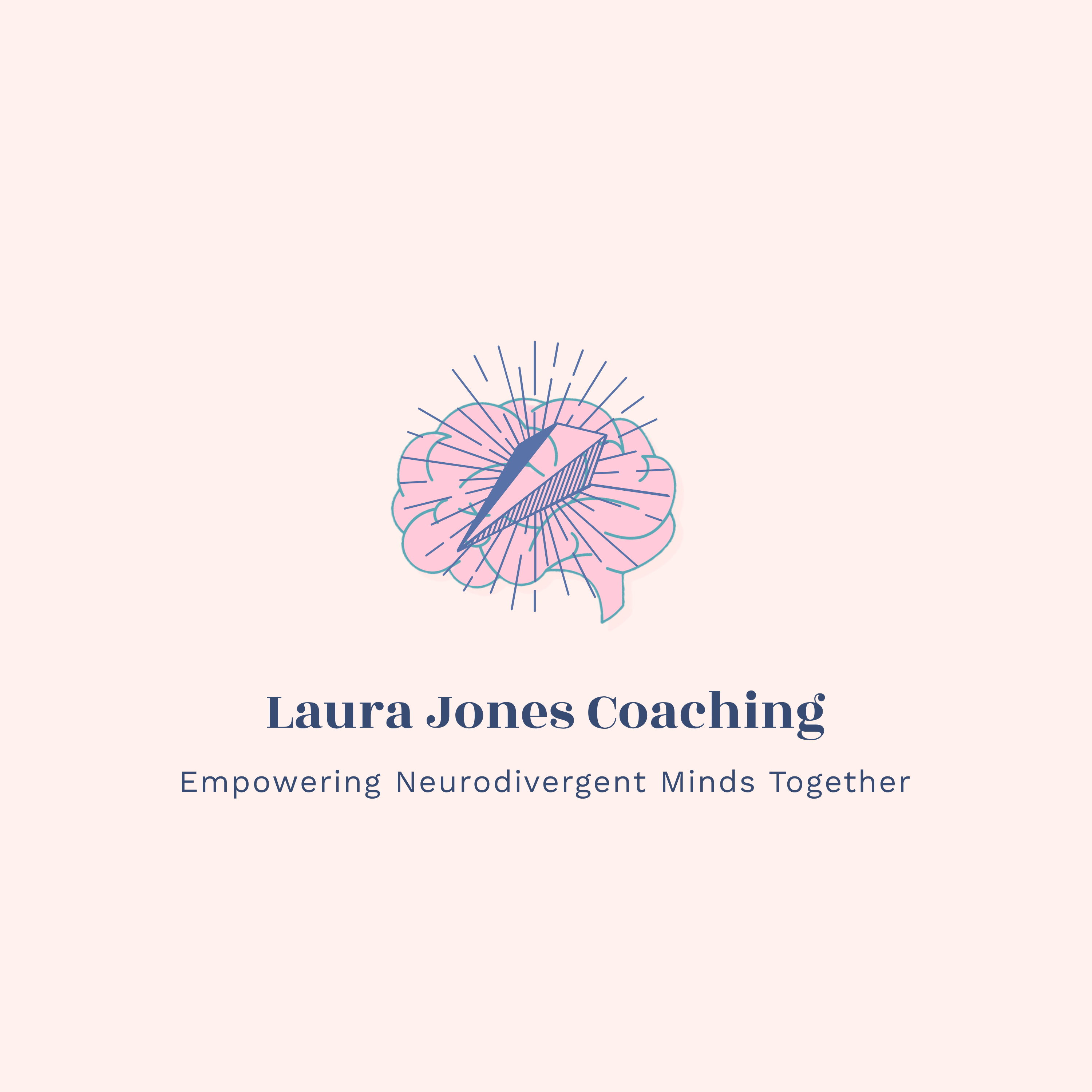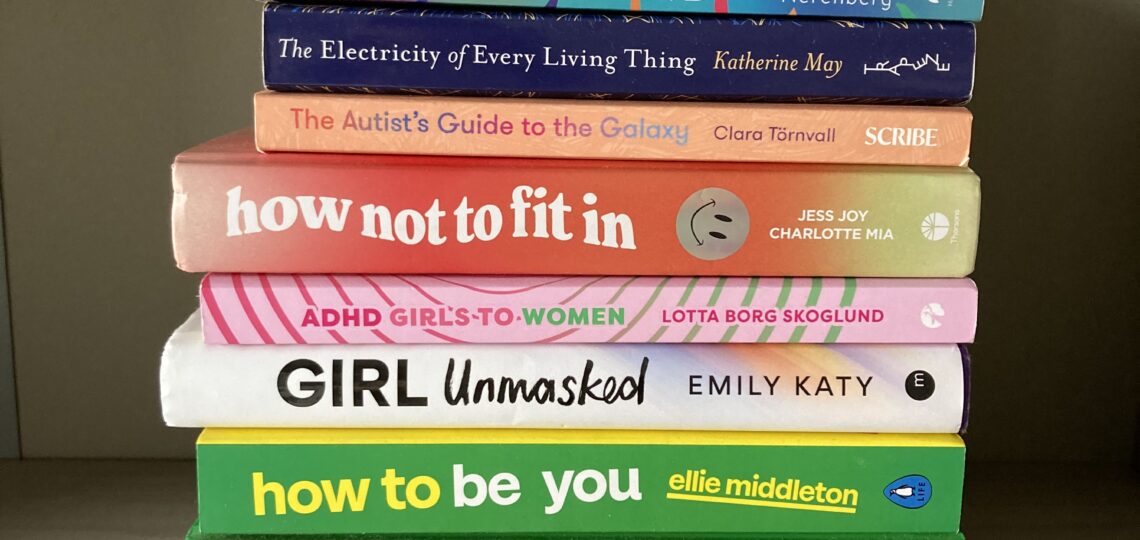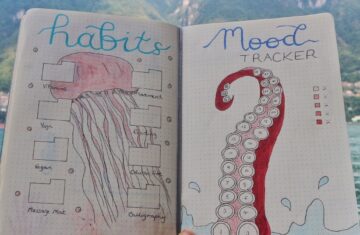Reading Leanne Maskell’s post on LinkedIn this morning about hyperlexia got me thinking about all the books I’ve read and all the information I’ve consumed through social media, articles, courses and podcasts over the last two years on my neurodivergence hyper focus. One of the first books I bought was Jenara Nerenberg’s Divergent Mind which has a chapter on sensitivity. This was way before I realised I was autistic. I was waiting for my ADHD assessment and trying to collect as much information as possible to reduce the imposter syndrome and internalised ableism. It was like reading an explanation of my life. I’ve read many books since then, a selection you can see in the second photo below and I have so many more on my wish list.
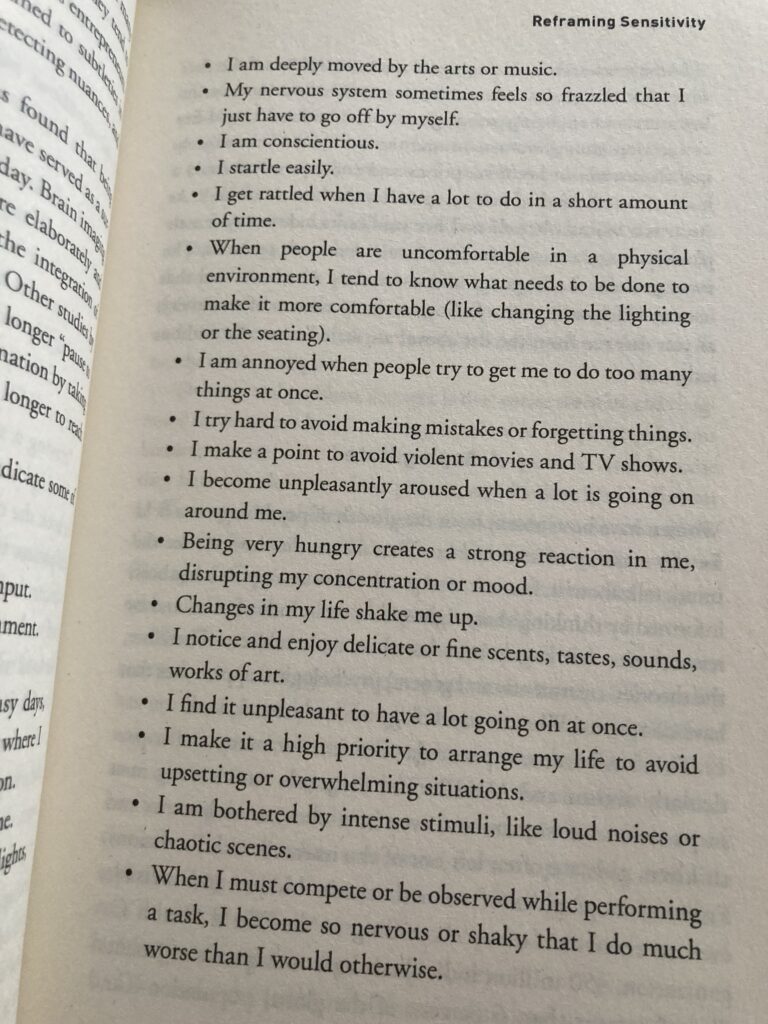
I’m really grateful for this hyper focus getting me back into reading again as since I had my boys, I’ve only been able to read about one book a year and only while on holiday away from home, as my mind just felt so full at home and I just couldn’t concentrate enough to get into a story. Titrating on ADHD medication at the end of last year felt like it kick started my brain and I’ve since got back into reading fiction. I devoured books as child/teenager/in my early 20s, and would go to the library every week to exchange my books for something new. There was one point where it was difficult to find anything as it felt like I’d already read the whole teenage section.
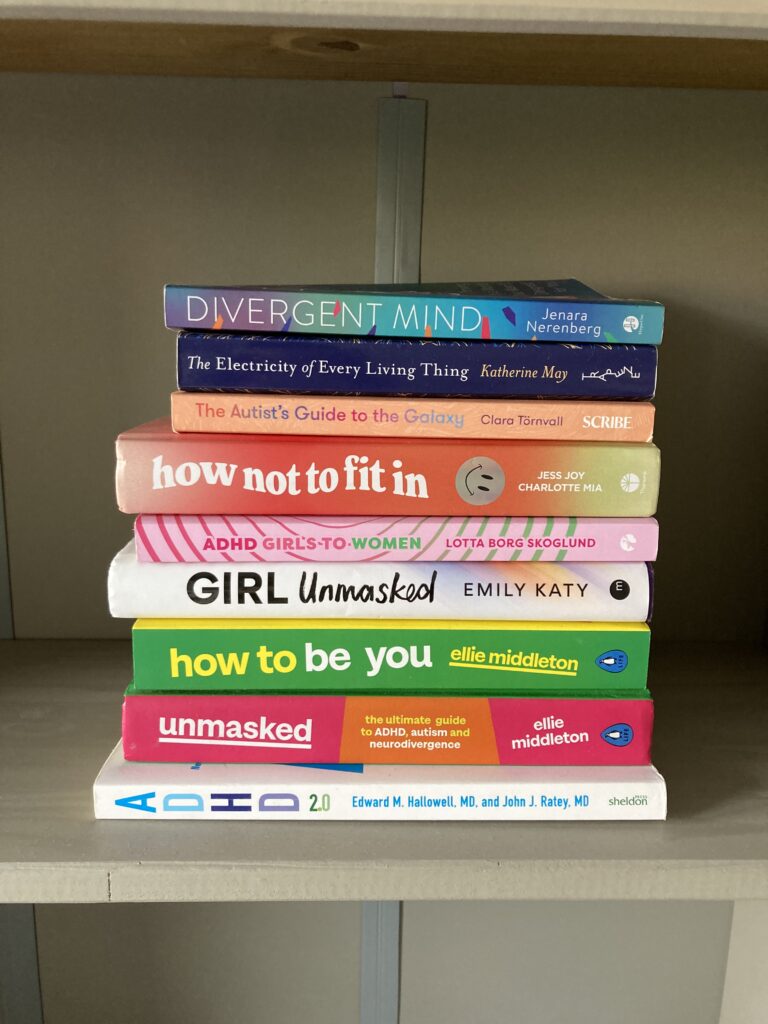
Reading was a way for me to escape reality, immerse myself in a world that wasn’t so scary and where I could imagine myself not feeling so alien. I guess it became a coping strategy and a way for me to relax and wind down after a full day of masking at school and then at work. I totally lost this when I had my children as my brain made them my hyper focus, which I understand as a biological change when you become a mother, but what it meant was that I was in a constant state of hyper vigilance and overwhelm and therefore couldn’t switch off and use my previous coping strategies.
I think this is what postnatal depression is for so many neurodivergent women and why using my lived experience as a peer support worker is so validating both for them and for me. I get to talk to women every day and help them feel less alone.
Having this lived experience also helps me as a coach in that understanding my how my clients’ brains work, gives me a unique position to help them to understand themselves and find strategies that work for them so that they can set real attainable goals.
